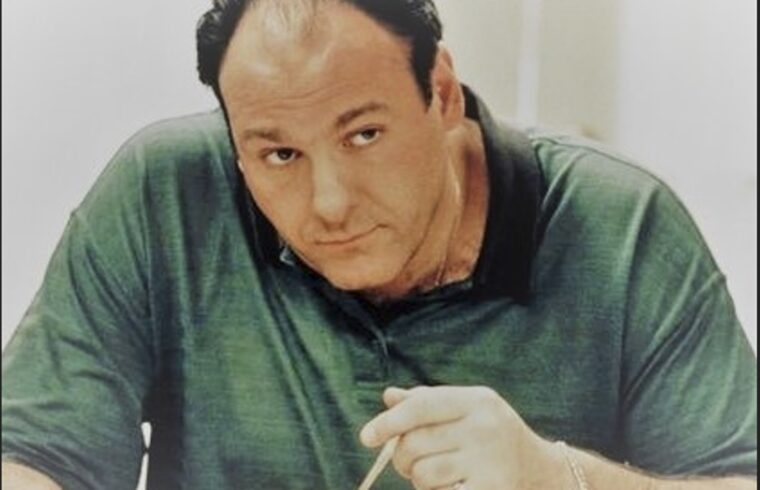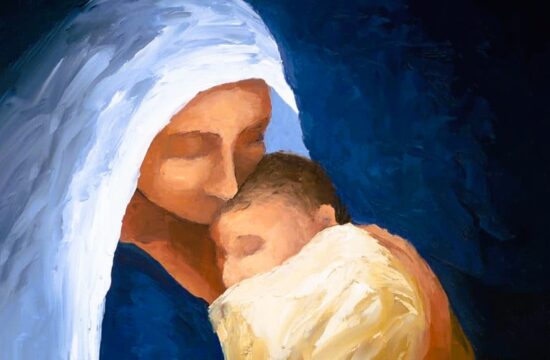In recent years there’s been a number of television shows that are remakes or revisit characters and storylines that were popular and enjoyed success in the past. One that is particularly interesting had one of these reboots a few weeks ago. Just a disclaimer, this is not a recommendation or something that I’m advocating in any stretch of the imagination, lest anyone go home and says “the priest was telling us we should watch this.” But it’s hard to deny the impact the show The Sopranos – and in particular the main character Tony Soprano has attracted in the over 20 years since that program first premiered. It remains on the top of critics’ lists for “greatest television dramas.” With a recent movie that was released that was the “prequel” to the series, interest in the show has grown once again along with numerous interviews with the cast and creators…. even going to Barnes and Noble the other night, there was another “tell-all book” on the new release shelf.
Thanks so much for stopping by to read this, my homily for the FIRST SUNDAY OF ADVENT-November 28, 2021, for sharing it on your social media posts and your feedback and comments… I’m also grateful for all those who’ve asked for the audio version and share them as well at SOUNDCLOUD click HERE or from ITUNES as a podcast HERE. May the Lord be glorified in your reading and sharing Sincerely in Christ – Father Jim
-PS: We are beginning the Annual Red Hawk Catholic Christmas Appeal a week early in anticipation of Giving Tuesday – for more information if you’re interested in helping: https://www.facebook.com/donate/673334786984593/ Thank You for your consideration!
Tony Soprano, for those who don’t know, is this Italian-American Mob boss (living in of all places, our own backyards here in Northern New Jersey) Part of what has made this such a notable character is that it was the first in a line of many recent characters and stories that focus on “anti-heroes.” While a majority of stories show characters who are morally good or striving to be morally good somehow overcoming the odds and challenges to do something noble, laudable, courageous – the anti-hero is the opposite. They are apathetic or individuals who do a lot of morally evil things, but the results, the reasons, are presented as neutral or even understandable. Tony Soprano re-introduced this type of character in our era and to quite an extreme. Here was this married man with two kids – so there were a lot of storylines that demonstrated things that were relatable to a majority of Americans. But his way of taking care of his family – was criminal, included gross violence, depravity, and murder. His way of dealing with stress and anxiety was infidelity and excesses of everything – food, alcohol, money. There probably was not a deadly sin that was missed – nor that he didn’t try to justify, explain away as understandable.
One thing that is fascinating is hearing how the creator of the show, David Chase, views the whole thing. In a recent interview, he said “I didn’t think that Sopranos would live on at all even after doing it and even after it got all these accolades because I thought, ‘In a couple of years the references won’t work, nobody will know what we’re talking about, the phones will be different, TVs will be different.’ That part of it is true — the technology is different — but apparently what it’s about still resonates with people.”
As a television and movie creative, that has to be particularly rewarding. But as a priest, it’s utterly frightening. What is it that resonates? Why do people seem to on some level admire the character? That there are people who love him, wanting to see him get away with stuff… that people were rooting for him as he did one horrific thing after another?
Not to get too heady, but there’s always been that philosophical debate does art imitate life or does life imitate art? I’m not sure and I’m not sure if it even matters. The point that this character and this “anti-hero” genre remains so popular says something about our world and our culture. We seem to have this sense, this mentality that in the end, (for those who believe in it) that everyone goes to heaven… That bad behavior is understandable or can be explained away. That there’s always some justification, some reason, some excuse to explain away crimes, immorality. That as long as you try your best, that’s all that matters… That you’re basically a good person. Tony Soprano exemplifies those attitudes as he launches into justifications saying that he’s not as bad as someone else or he’s doing what everyone else is doing – as he points out hypocrisies among government leaders and religious figures.
Part of the reason for this show’s popularity is that we are living in a time where people were moving away from religious beliefs and practices. Which has now been coupled with leaders trying to cancel any reference to Jesus Christ and the many things that His followers brought to establish a world, a society that was at least trying to incorporate His teachings for the greater good. In that morally relativistic world, where people make their own rules and judgments, the only barometer is comparing one to another.
It’s hard even for us, Catholic Christians, to not be affected by this type of cultural shift that we’re surrounded by. Maybe not to the extremes of people claiming moral loopholes and justifications for every deviant behavior. But perhaps taking comfort that we’re doing better than an anti-hero like Tony Soprano – heck it’s Thanksgiving weekend and we made it to Mass, so obviously, Jesus must be impressed with us.

The four-week season of Advent is meant to remind us of Jesus Christ’s coming to us. Because of all the Christmas trees and decorations up we can focus simply on celebrating his first coming, but this Gospel puts a pause on Jesus’ birthday celebrations. Instead, the season starts with the reminder of Jesus Christ coming at the end of Human History. That is sobering to confront in itself: that there will be an end. There will be an end for us individually – that we know all to well every time we attend a funeral or pass a cemetery. But we believe that there will be an end to human history. We profess that every Sunday in the creed “He will come again in glory to judge the living and the dead and his kingdom will have no end.”
This first Sunday of Advent, this reading from the Gospel of Luke calls us to focus on that, Jesus’ coming at the end of time. How do we live as followers in this in-between time of His first and Final coming? His expectations are not to get complacent, not to get lukewarm in our striving for holiness, desiring to live virtuous, Christ-centered lives. “Beware that your hearts do not become drowsy from carousing and drunkenness and the anxieties of daily life… Be vigilant at all times.” That’s a theme that comes up again and again – we have to be on alert whenever we’re getting too comfortable in this life, or too obsessed about this present life. The disciple of Christ is meant to feel that tension of living in this world, but not of the world. So yes, we have day-to-day obligations, work responsibilities, and family concerns – and yes, we are to enjoy the blessings of this life. But for too many of us, life becomes constantly fixated on those two extremes – the stresses of this life and enjoying this life.
Being vigilant means recognizing all of this is transitory. That this world and everything in it will not last. We’re called to “stand erect” with raised heads – meaning we’re attentive to the authority of Jesus Christ first and foremost. We’re obedient to Him. We’re conforming our lives to Him. That at the end of time, when all are judged, it’s not going to be a sliding scale or where we’re graded on a “curve.” It’s not going to matter what the rest of the world was thinking or doing – but what did we do or didn’t we do?
In a world that seems fixated on anti-heroes, we are called to heroic virtue. Which begins just by doing the basics: fasting, praying, and almsgiving as a part of my daily life. Fasting meaning doing some acts of mortification, making some sacrifice on a regular basis – whether it’s giving up a meal (or eating for a day) or something that I enjoy simply as my saying “this thing I enjoy, this thing that I like that I might even say I love – is not something more important than God in my life. Praying includes worshiping God – especially with Sunday Mass, getting to confession on a regular basis, but it also means conversing with Him meaning sharing our cares and concerns on a regular basis, and even more important, making space to listen to Him speaking to us. And almsgiving means that I am thankful for all that I’m blessed with and respond by being mindful of those in need whether they are those closest to me in my families, friends, or neighbors, or someone who is nameless and anonymous to me, but I recognize is not nameless or anonymous to God. I do something to help others recognize how good God has been to me, and how He is looking for me to be that blessing to someone else.
Advent proclaims once again the news that Christ Comes. Jesus’ coming has changed human history – has the potential to change our histories – and will be the culmination of all human history. May we enter into this season of Advent with renewed faith and hope to prepare to welcome Him.












What would Jesus have said to the man hanging on the cross next to him, if that man was Tony Soprano, instead of the thief?
To answer your hypothetical – 1- Which side (since there were two criminals on each side) and 2 – What would Tony have said?
Jesus’ salvation is freely, generously given – to those who are truly open to receiving it.